[Review] Sense and Sensibility ESP/ENG

A mi me encantan las novelas que están basadas en épocas pasadas, sobre todo en el siglo XIX, pero lo que hace especial a este clásico es que fue escrito en esa misma época. Jane Austin casi siempre dejaba entrever su personalidad a través de algunos de sus personajes femeninos y quizá por eso es que ella es una de mis autoras favoritas, porque era una mujer bastante adelantada para su época, y siempre utilizó su pluma como una forma de revelarse ante los preceptos de esos años.
I love novels that are based on past eras, especially in the 19th century, but what makes this classic special is that it was written in that same era. Jane Austin almost always gave a glimpse of her personality through some of her female characters and maybe that's why she is one of my favorite authors, because she was a woman quite ahead of her time, and she always used her pen as a way of revealing herself to the precepts of those years.

El libro narra la historia de las hermanas Dashwood (son tres) pero como tal la historia se centra en la mayor, Elinor Dashwood y la hija del medio Marianne Dashwood, ambas son muy diferentes entre sí. Elinor, como la hija mayor tiene un gran sentido de responsabilidad y compromiso, mientras que Marianne es impulsiva y apasionada, pero la vida de toda la familia cambia cuando muere el padre y las mujeres quedan prácticamente a merced de una modesta pensión que su único hermano está obligado a darles, a partir de este momento las hermanas tienen que abandonar su antiguo hogar y mudarse al campo y tienen que enfrentarse a algunos desafíos, pero ambas reaccionan de una forma distinta según sus personalidades.
The book tells the story of the Dashwood sisters (there are three of them) but as such the story focuses on the eldest, Elinor Dashwood and the middle daughter Marianne Dashwood, both are very different from each other. Elinor, as the eldest daughter has a great sense of responsibility and commitment, while Marianne is impulsive and passionate, but the life of the whole family changes when the father dies and the women are practically at the mercy of a modest pension that their only brother is obliged to give them, from this moment the sisters have to leave their old home and move to the country and they have to face some challenges, but both react in a different way according to their personalities.
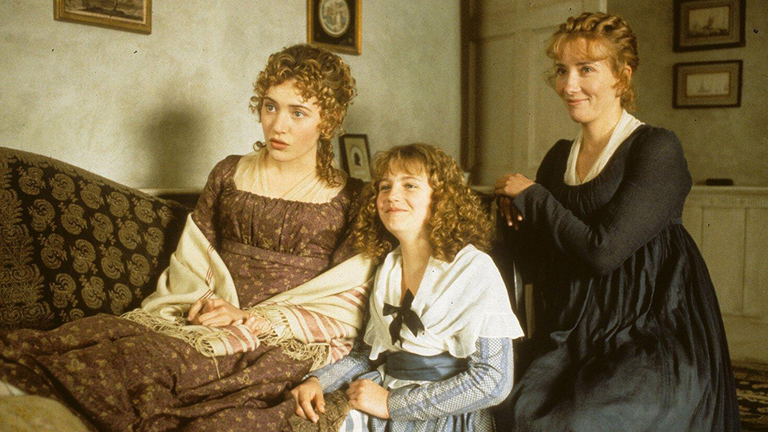
Al igual que pasa con Orgullo y Prejuicio, Jane Austin le otorga una emoción a cada uno de sus personajes relevantes y ese es su rasgo característico, en este caso Elinor es la razón, representa el sentido, pero es una mujer reservada, no se permite a si misma mostrar las emociones, pero esto no significa que ella no las sienta, al contrario, dentro de ella tiene un universo de emociones que poco a poco la devoran. Marianne es todo lo contrario, muy pasional y emocional, por eso Austin la asocia a la Sensibilidad, ella no puede contenerse y le molesta demasiado que su hermana no pueda expresarse. Su personalidad excéntrica casi siempre desafía los convencionalismos de la época en la que vive, pero a ella eso parece no importarle, es como es y punto porque le gusta serle fiel a si misma.
As it happens with Pride and Prejudice, Jane Austin gives an emotion to each of her relevant characters and that is her characteristic trait, in this case Elinor is the reason, she represents the sense, but she is a reserved woman, she does not allow herself to show emotions, but this does not mean that she does not feel them, on the contrary, inside her she has a universe of emotions that little by little devour her. Marianne is the opposite, very passionate and emotional, that's why Austin associates her with Sensitivity, she can't contain herself and it bothers her too much that her sister can't express herself. Her eccentric personality almost always defies the conventions of the time in which she lives, but she doesn't seem to care, she is the way she is and that's it, because she likes to be true to herself.
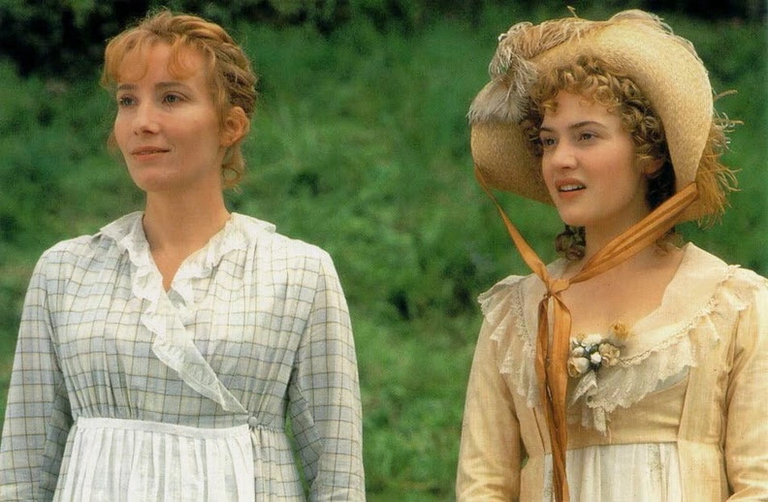
Si hay un personaje que me enamoró en todo el libro 😍 es El Coronel Brandom porque él aparece en el libro como un personaje de bajo perfil, incluso como alguien reservado, aburrido y sin gracia, pero después, uno como lector se da cuenta que en realidad lo percibimos así porque lo vemos desde el punto de vista de Marianne, y ya sabemos que su personalidad dista mucho de esto, pero luego nos damos cuenta de la gran nobleza que tiene este personaje, es un hombre culto, caballero, responsable y bondadoso que para mi representa la madurez y la estabilidad, dos características que honestamente le faltaban a John Willoughby.
If there is a character that I fell in love with in the whole book 😍 is Colonel Brandom because he appears in the book as a low profile character, even as someone reserved, boring and unfunny, but later, one as a reader realizes that in reality we perceive him like that because we see him from Marianne's point of view, and we already know that his personality is far from this, but then we realize the great nobility that this character has, he is a cultured, gentlemanly, responsible and kind man who for me represents maturity and stability, two characteristics that John Willoughby honestly lacked.
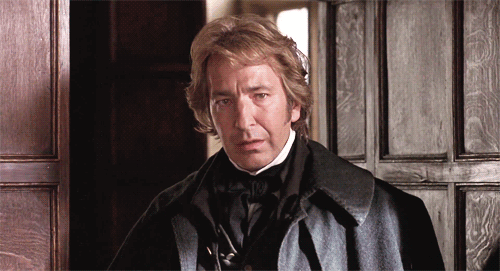
Mi escena favorita paradójicamente es una de las más tristes y dramáticas de toda la novela, les hablo de la enfermedad de Marianne porque fue precisamente esto una de las cosas que provocó que las emociones de Elinor finalmente salieran a flote, es muy doloroso leerlo y particularmente a mi me conmovió porque sé lo que es perder a una hermana, es desgarrador y precisamente Elinor quería evitar eso, pero estaba consciente de que la enfermedad de su hermana era el resultado de su propia pasión arrebatadora, no supo dominar sus emociones y se dejó arrastrar por ellas.
My favorite scene paradoxically is one of the saddest and most dramatic of the whole novel, I tell you about Marianne's illness because it was precisely this one of the things that caused Elinor's emotions to finally come out, it is very painful to read it and it particularly moved me because I know what it is to lose a sister, it is heartbreaking and precisely Elinor wanted to avoid that, but she was aware that her sister's illness was the result of her own rapturous passion, she did not know how to control her emotions and let them drag her down.
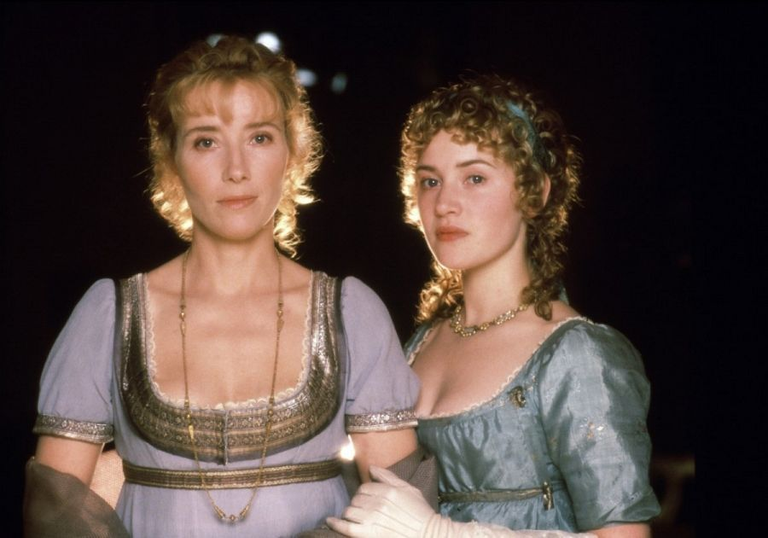
Al leer este libro y todas las obras de Austin nos damos cuenta de como eran las expectativas sociales de ese entonces, es una forma también de criticar las presiones sobre las mujeres para casarse por conveniencia, no por amor, y la manera tan absurda en que eran implementados los roles de acuerdo al genero (los hombres eran proveedores y por eso recibían más libertades y privilegios, las mujeres solo debían limitarse a ser excelentes madres y esposas) pero de igual manera el libro aborda las desigualdades de clase.
Reading this book and all of Austin's works gives us a sense of the social expectations of the time, it is also a way to criticize the pressures on women to marry for convenience, not for love, and the absurd way in which gender roles were implemented (men were providers and therefore received more freedoms and privileges, women should only be limited to being excellent mothers and wives) but also the book addresses class inequalities.
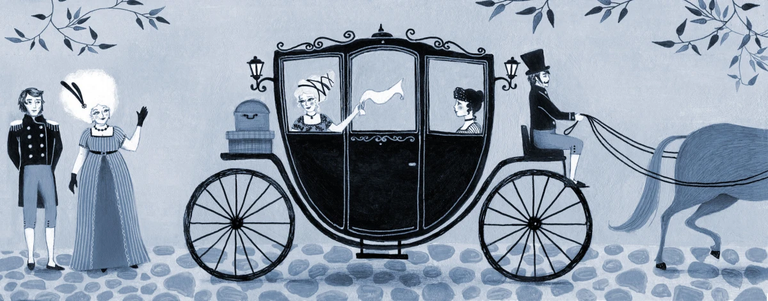
That was all for today but surely another time I will come here with a new review, God willing. Thank you very much for reading, I send you virtual kisses and hugs 😘 🤗.
Eso fue todo por hoy pero seguramente en otra ocasión vendré por aquí con una nueva reseña más, Dios mediante. Muchas gracias por leer, les mando besos y abrazos virtuales 😘 🤗.

Made with Canva Editor
Imagen editada en Canva
Me gustan mucho las novelas de época, y creo que Jane Austin es una de las escritoras cumbres sobre este genero literario. Gracias por la reseña.
A mi también me gustan las novelas de época, es como si de cierta manera las estuviésemos viviendo en carne propias.